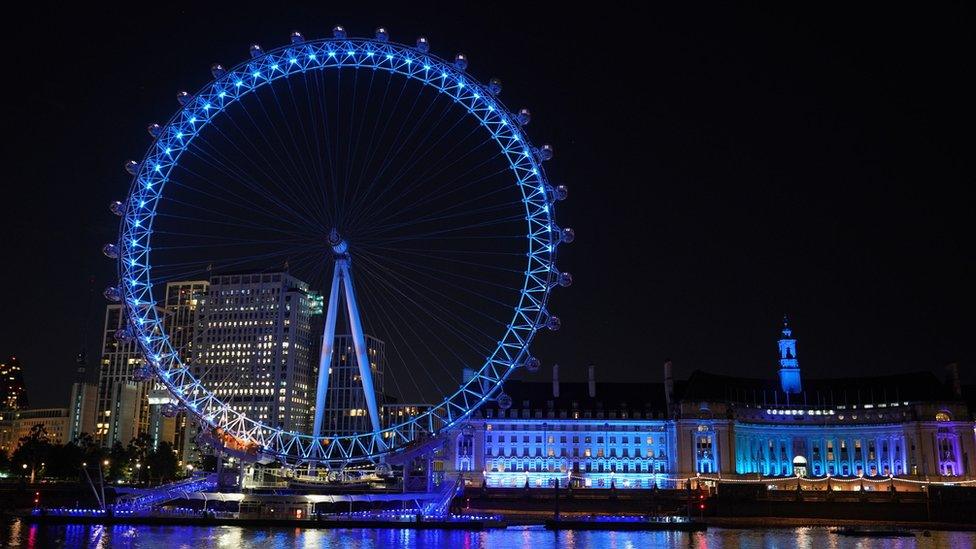Sir Alexander Fleming and the accident that changed modern medicine
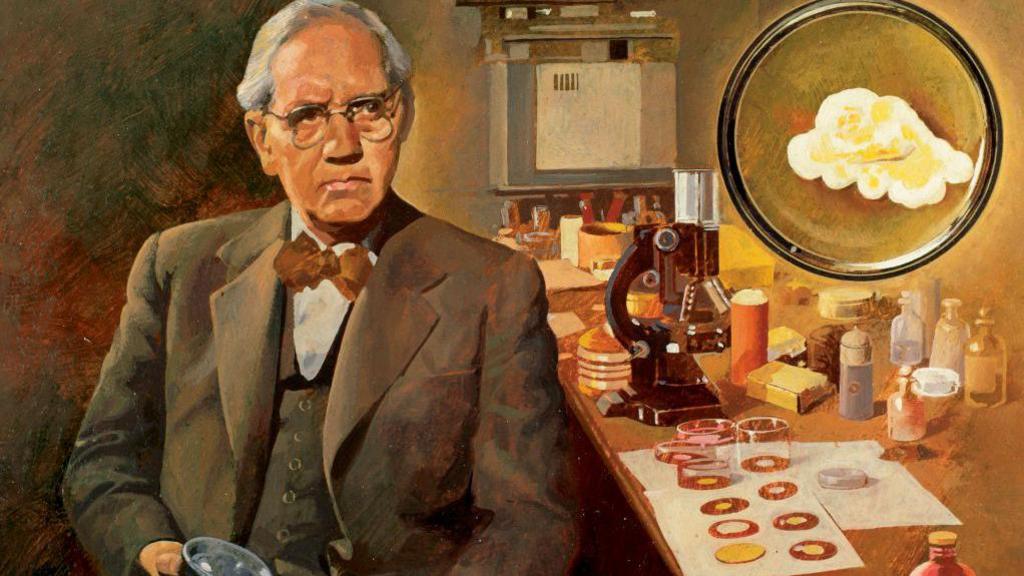
- Published
Imagine making a scientific discovery that would go on to save millions of lives - by accident.
Well that's exactly what happened on 28 September 1928, when Sir Alexander Fleming, a Scottish microbiologist, found a substance called penicillin that transformed the history of medicine.
Penicillin was the world's first antibiotic and was vital for creating medicines to kill bacterial infections.
But who was Alexander Fleming and how did he make this amazing discovery nearly 100 years ago? Let's take a closer look...
More brilliant bacteria stories!
Bacterium as big as an eyelash is the largest ever discovered!
- Published25 June 2022
How is bacteria being used to tackle plastic pollution?
- Published28 April 2021
How bugs clean your toilet water
- Published11 September 2019
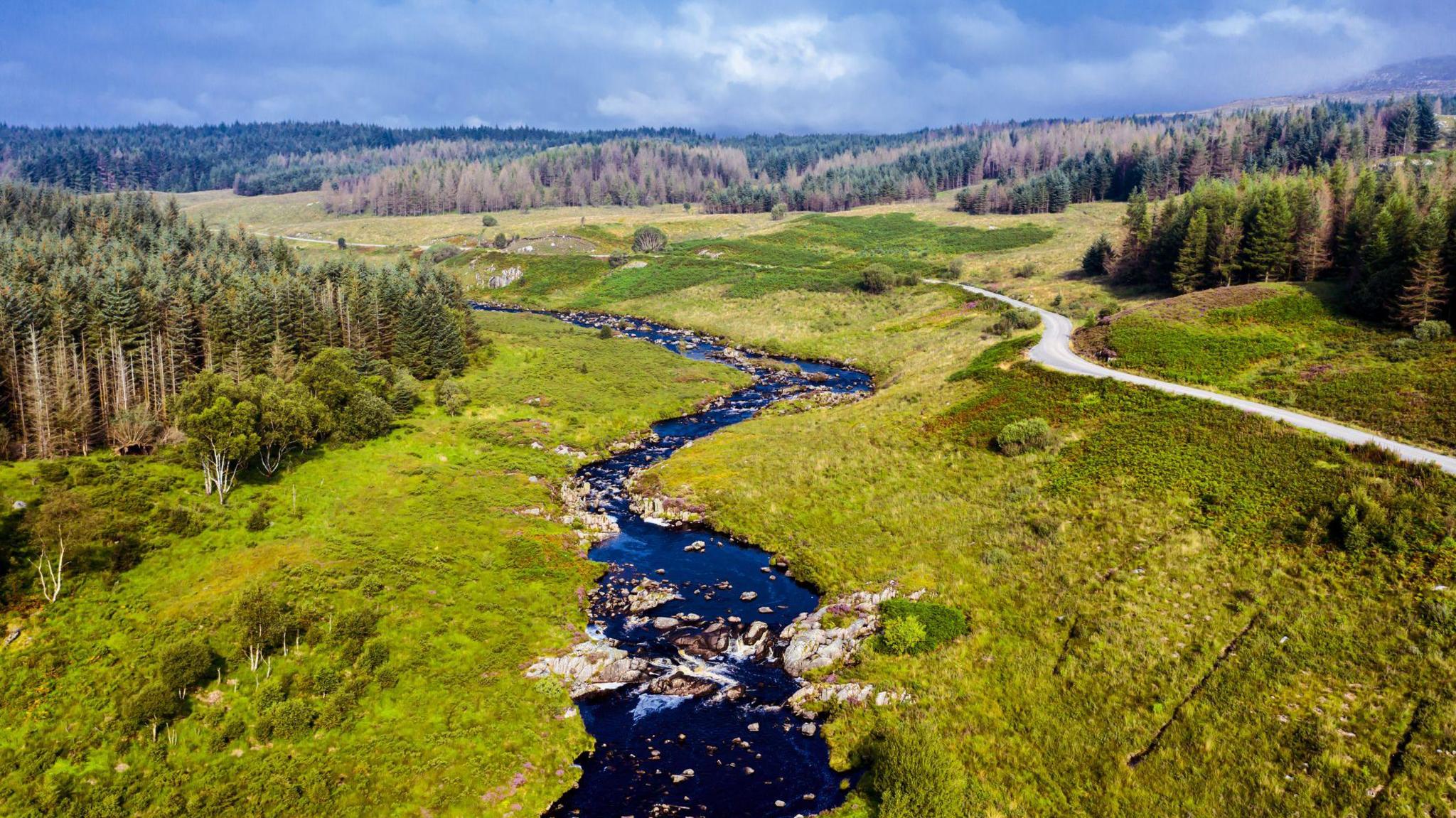
Alexander Fleming grew up in Ayrshire, Scotland
When was Alexander Fleming born?
Alexander Fleming was born on Lochfield Farm in Ayrshire, Scotland on 6 August 1881.
He had three siblings and four half-siblings from his father's previous marriage.
His father died when he was seven years old and his mother managed the farm with her eldest stepson.
After being educated in local schools, he moved to London where his brother was a doctor. He spent his teenage years learning in the city.
In 1901 he enrolled in St. Mary’s Hospital Medical School in Paddington, London.
He was recognised as being naturally bright and a quick learner, winning prizes along the way.
He qualified as a doctor in 1906 and then began his research.
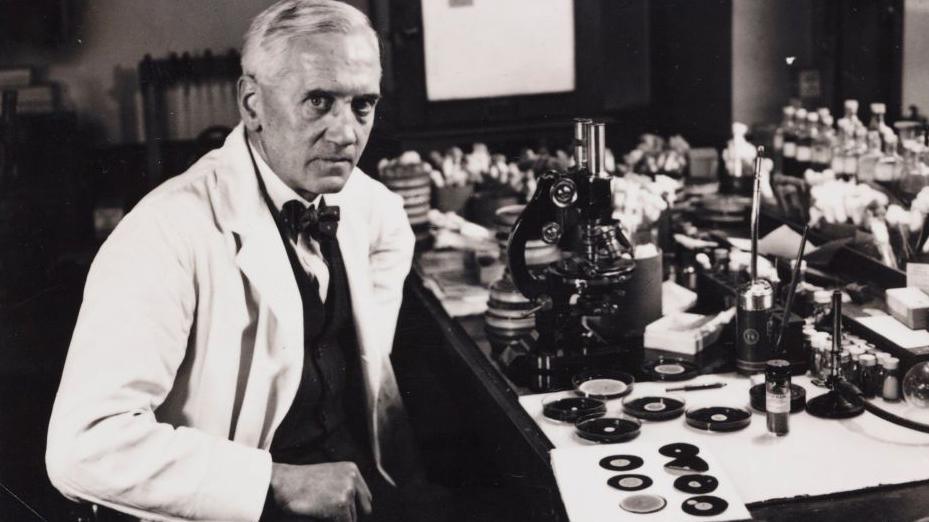
Alexander Fleming's research in World War One
Alexander Fleming served in the Royal Army Medical Corps during World War One which took place from 1914-1918.
He was involved in treating wounded soldiers from the battlefield.
Doctors weren't able to treat certain conditions that nowadays are much easier to deal with, simply because they didn't have the right medicines.
He would see wounds that would lead to limbs being amputated, or cut off, to stop infection from spreading.
Many lives were also lost due to an outbreak of flu in 1918.
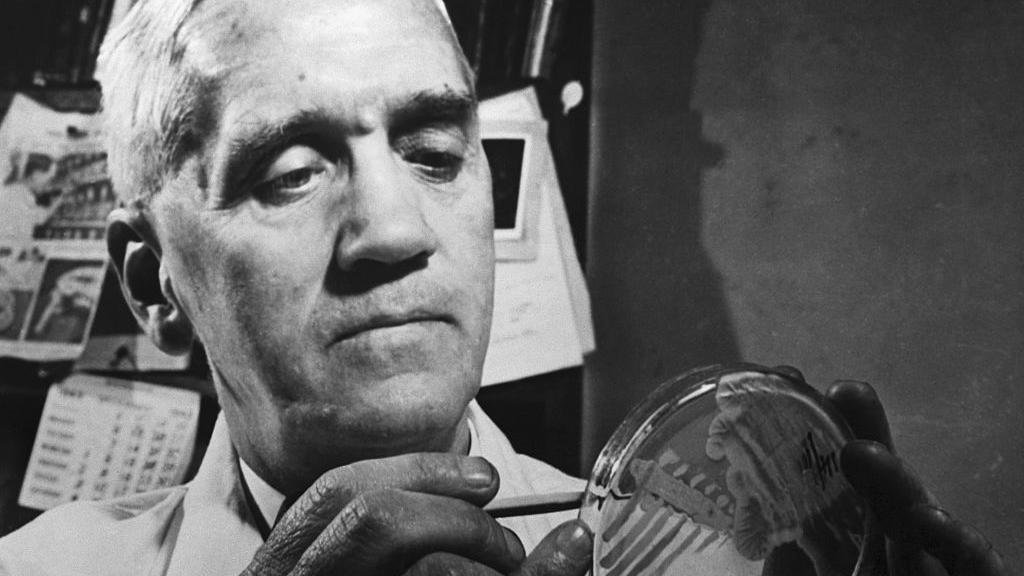
Alexander Fleming studying a culture dish
How was penicillin found by accident?
After returning from the war, Alexander Fleming started researching the influenza, or flu, virus.
After going on holiday, he returned to his laboratory, and discovered something very strange had happened.
Before he had gone away, he hadn't cleared away all of the dishes of bacteria that he'd been working on and a blob of mould had developed in one of his dirty dishes.
But while bacteria was growing everywhere else in the dish, none was growing around the mould.
This told him that something in the mould was killing the bacteria.
He worked out what this substance was and called it penicillin. It was the world's first antibiotic. An antibiotic is a substance that destroys or limits the growth of micro-organisms, like bacteria.
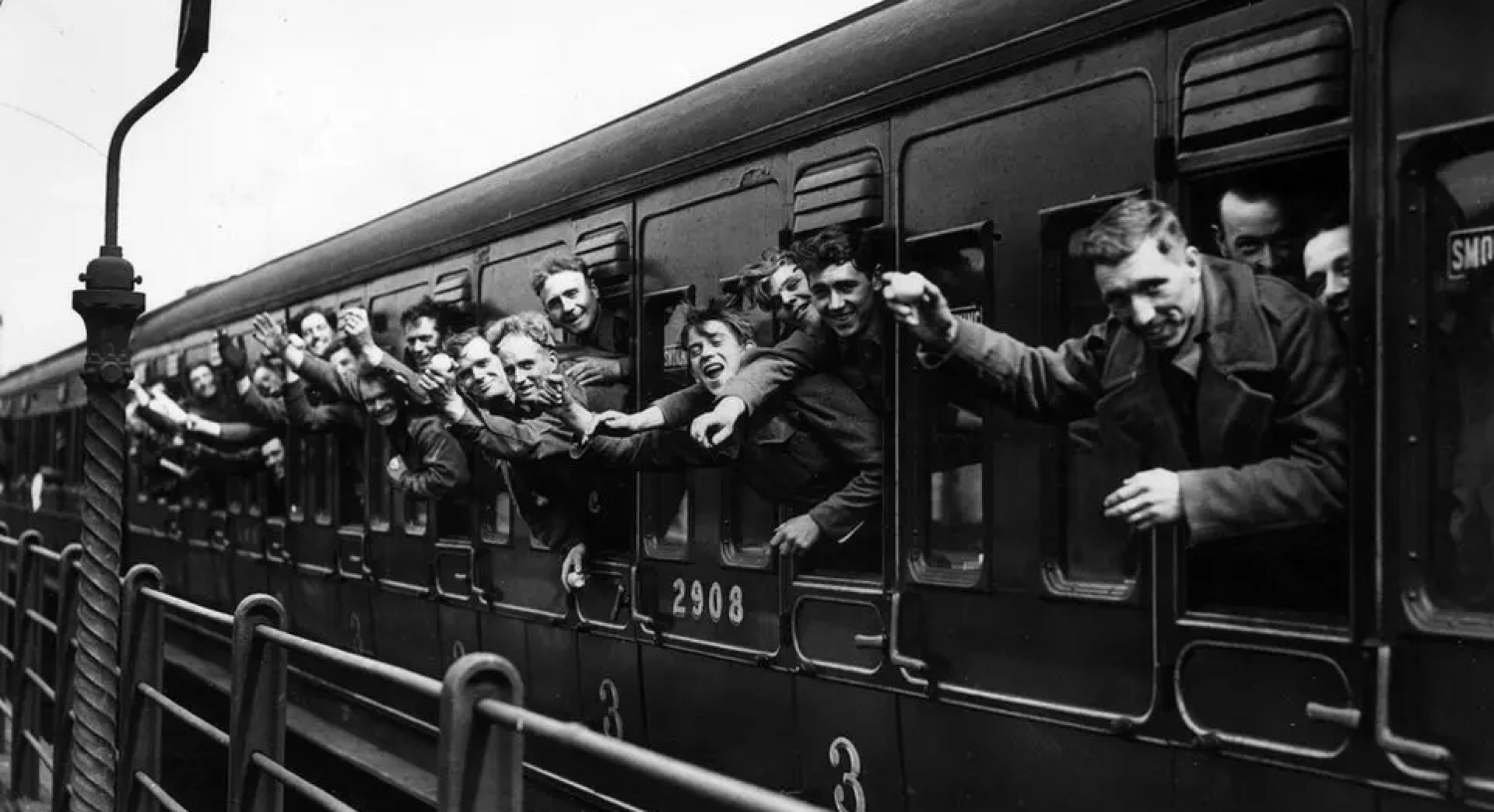
Penicillin saved the lives of many soldiers during World War Two
How did penicillin save people during World War Two?
It was another 12 years after the substance's initial discovery before it was ready to be widely used as a medicine.
Penicillin would become responsible for killing the different bacteria responsible for many serious human infections - for example, tonsillitis, bronchitis and pneumonia.
Its discovery also allowed doctors and surgeons to carry out more invasive treatments, which would not have been possible before because of the risk of deadly infections.
During World War Two, it saved the lives of many soldiers wounded in battle.
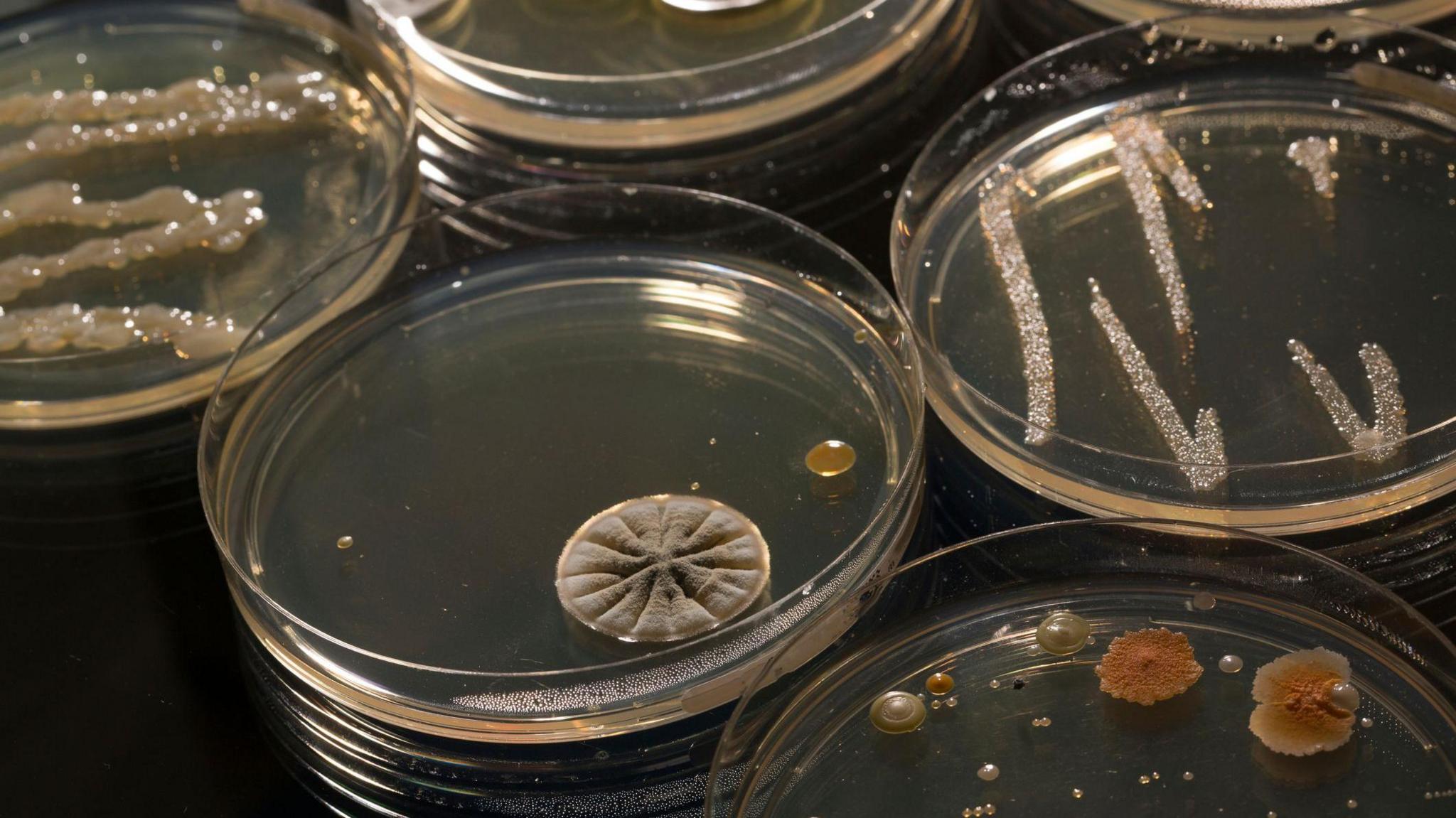
Bacteria cultures growing on Petri dishes
Can penicillin still be used to cure infections today?
Penicillin is still used today, but it hasn't been without its problems.
By the 1950s, doctors were prescribing it so much that some bacteria was able to develop resistance to the medicine.
During a global epidemic of flu in 1957, many people died because the drug couldn't kill the bacteria.
A team of doctors worked to create the second generation of penicillins.
Over 100 new antibiotics have been discovered since 1928, but resistance to them is still a problem.
And while scientists continue to develop antibiotics, experts are still warning of the dangers of overusing them.
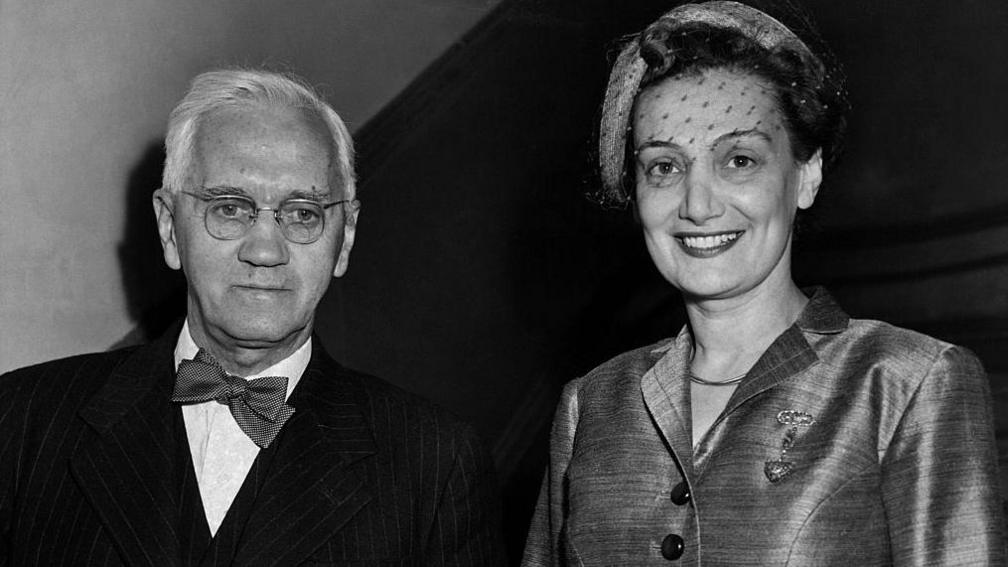
Alexander Fleming with his wife Amalia Courtsouns
What happened to Alexander Fleming?
Alexander Fleming was married twice and had a son who also went into medicine.
Mr Fleming was knighted in 1944 and won the Nobel Prize for his discovery. An award that recognises discoveries that have benefitted humanity.
In 1999, Time magazine named Fleming one of the 100 Most Important People of the 20th century.
An asteroid in the Asteroid Belt, called 91006 Fleming, is even named after him!
He died on 11 March 1955 in London and is buried in St Paul's Cathedral in London.
More stories like this
- Published3 May 2018
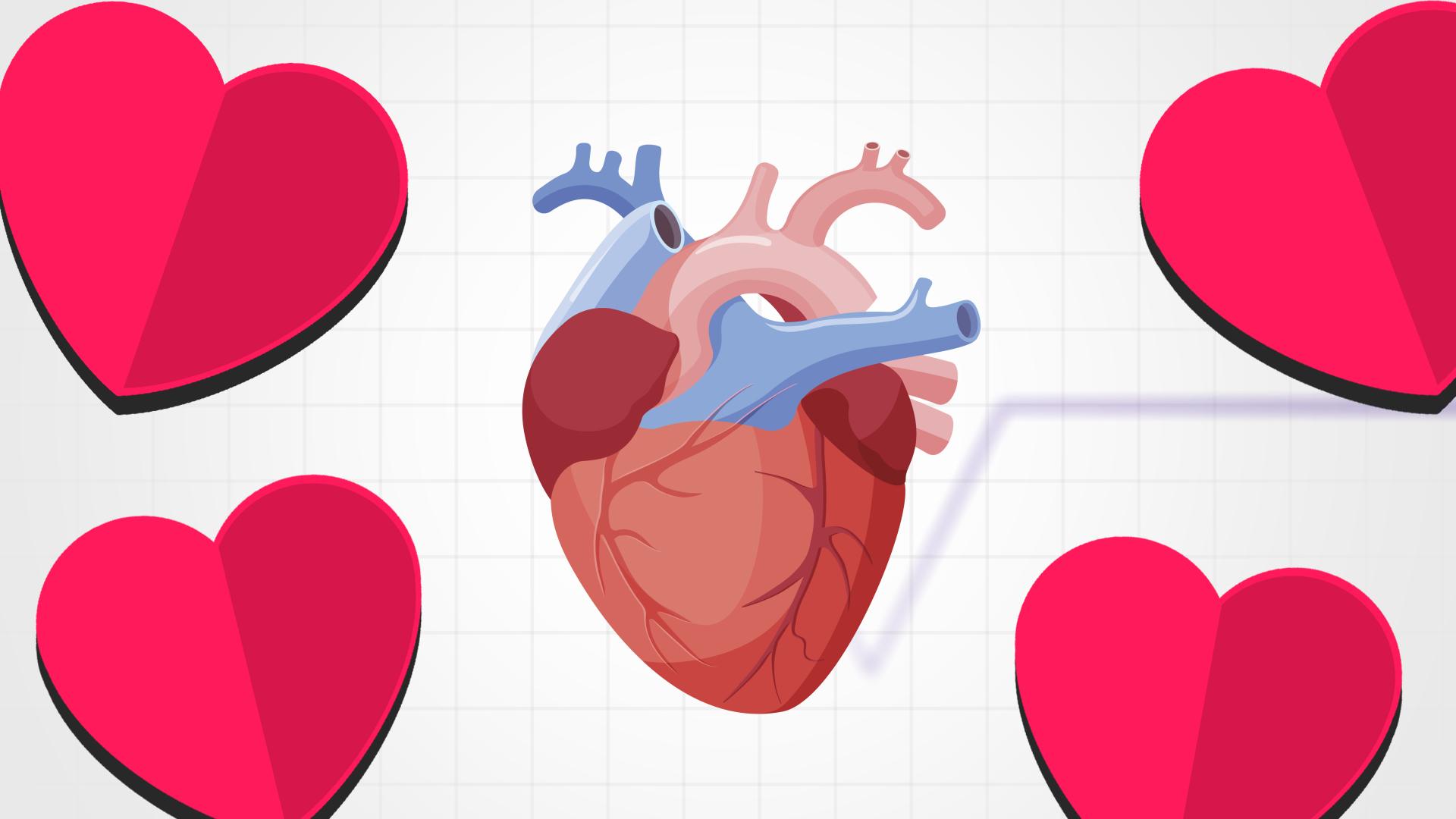
- Published23 July 2024
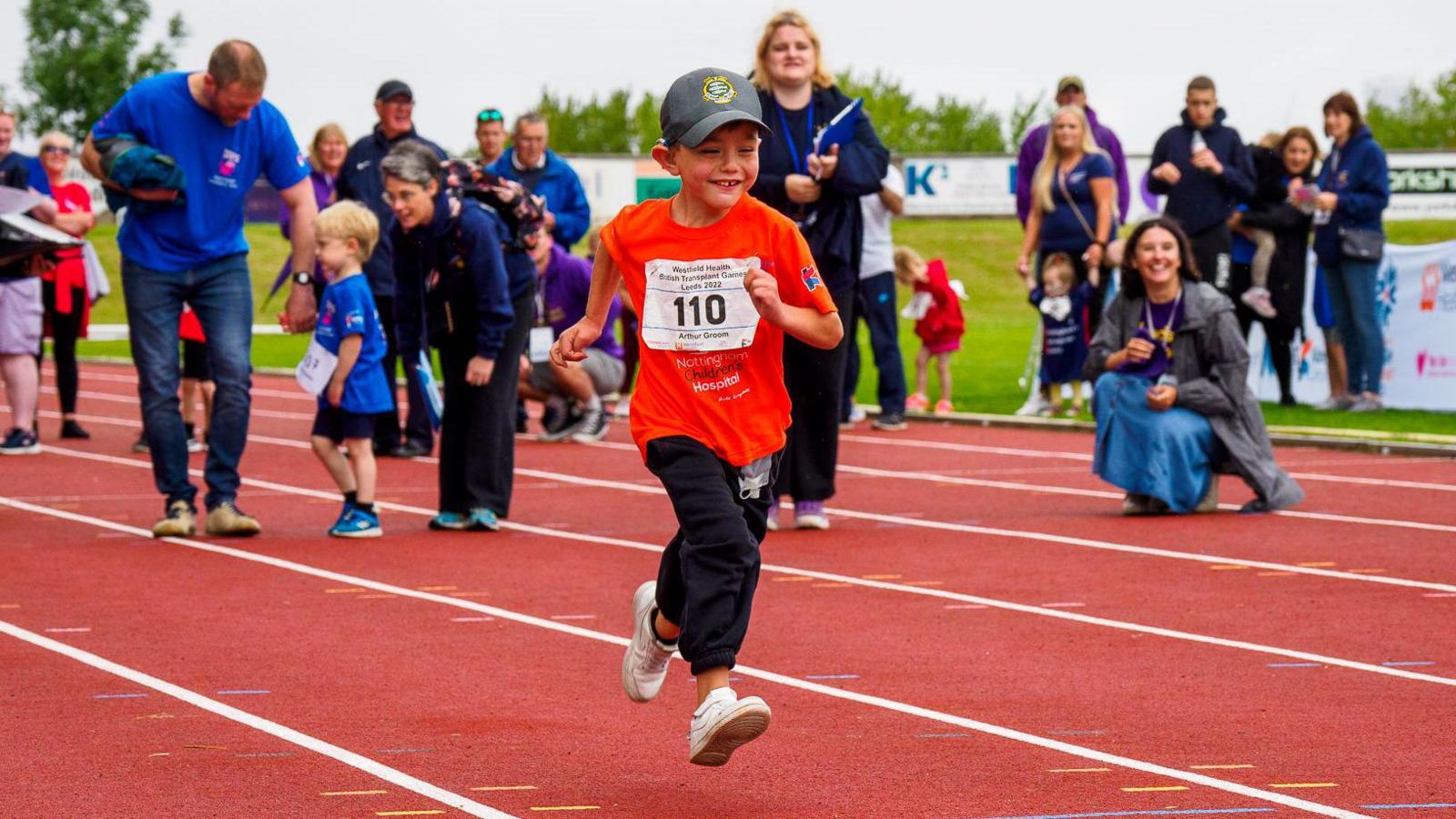
- Published6 July 2023
